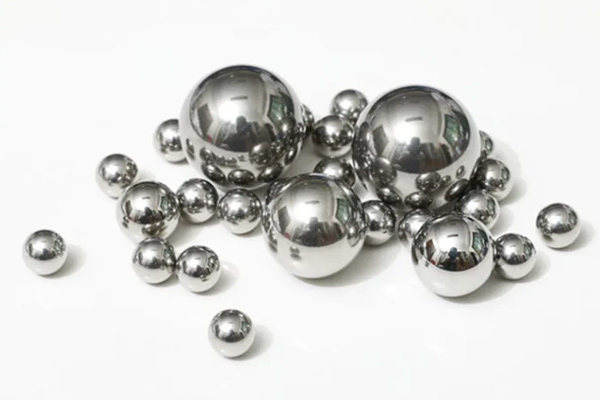Yaoyang Steel Ball Co., LtdTwenty years of manufacturing experience
Phone:134-0902-8985
The hardness of steel balls varies mainly due to the different heating and cooling conditions during the manufacturing process, as well as the different proportions of alloy elements.
Steel balls are made of cast or forged steel, and their hardness depends on the heat treatment and material selection during the manufacturing process. Generally speaking, steel balls can be cooled using different methods such as water quenching, oil quenching, or air cooling quenching, which directly affect the hardness and toughness of the steel balls.
In addition, the material used for the steel ball also affects its hardness. For example, there is a significant difference in hardness between high carbon steel and low carbon steel. After heat treatment, high carbon steel can achieve high hardness but poor toughness; After overheating treatment, the hardness of low-carbon steel is relatively low, but its toughness is better.
In addition, the proportion of alloying elements in the manufacturing process of steel balls can also affect their hardness. For example, adding alloying elements such as chromium, nickel, and molybdenum can improve the strength and hardness of steel, while adding elements such as titanium and vanadium can refine the grain size, improve the toughness and fatigue resistance of steel.
Therefore, the hardness of steel balls may vary depending on the heating and cooling conditions during the manufacturing process, material selection, and the proportion of alloying elements. When selecting steel balls, it is necessary to choose the appropriate hardness level and material type based on the actual application scenario.
In addition to the factors mentioned above, the hardness of steel balls is also influenced by other factors.
Firstly, the hardness of steel balls is closely related to their internal structure. The internal structure of steel balls can affect their toughness and hardness. For example, defects such as holes and cracks inside steel balls can affect their mechanical properties.
Secondly, the hardness of steel balls is also affected by surface treatment. For example, the surface of a steel ball can be subjected to shot peening or carburizing treatment, which can change the surface hardness of the steel ball, thereby improving its wear resistance and fatigue resistance.
In addition, the hardness of steel balls is also related to their manufacturing process. For example, casting process, forging process, heat treatment process, etc. can all affect the hardness of steel balls.
In summary, the hardness of steel balls is influenced by various factors, including heating and cooling conditions during the manufacturing process, material selection, proportion of alloy elements, internal structure, surface treatment, and manufacturing process. Therefore, when selecting and using steel balls, it is necessary to consider these factors in order to achieve good performance and effectiveness.



 Scan the code to contact us
Scan the code to contact us
© Copyright:Yaoyang Steel Ball Co., Ltd Record number:魯ICP備2023043567號-1